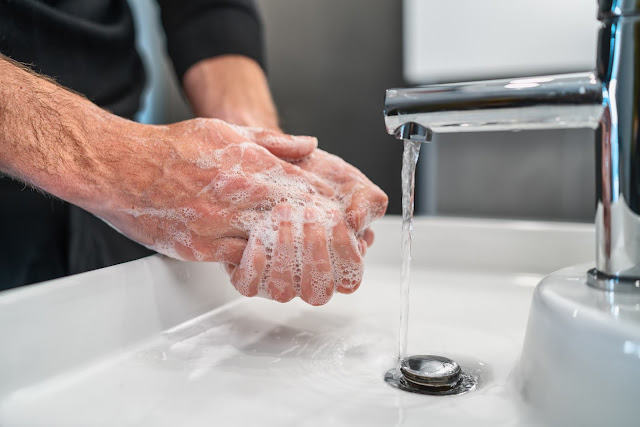Source: https://www.cdc.gov/coronavirus/2019-ncov/if-you-are-sick/care-for-someone.html
Protect yourself when caring for someone who is sick
Limit contact
COVID-19 spreads between people who are in close contact (within about 6 feet) through respiratory droplets, created when someone talks, coughs or sneezes
The caregiver, when possible, should not be someone who is at higher risk for severe illness from COVID-19.
- Use a separate bedroom and bathroom: If possible, have the person who is sick stay in their own “sick room” or area and away from others. If possible, have the person who is sick use a separate bathroom.
- Shared space: If you have to share space, make sure the room has good air flow.
- Open the window and turn on a fan (if possible) to increase air circulation.
- Improving ventilation helps remove respiratory droplets from the air.
- Avoid having visitors: Avoid having any unnecessary visitors, especially visits by people who are at higher risk for severe illness.
Eat in separate rooms or areas
- Stay separated: The person who is sick should eat (or be fed) in their room, if possible.
- Wash dishes and utensils using gloves and hot water: Handle any dishes, cups/glasses, or silverware used by the person who is sick with gloves. Wash them with soap and hot water or in a dishwasher.
- Clean hands after taking off gloves or handling used items.
Avoid sharing personal items
- Do not share: Do not share dishes, cups/glasses, silverware, towels, bedding, or electronics with the person who is sick.
When to wear a cloth face cover or gloves
Sick person:
- The person who is sick should wear a cloth face covering when they are around other people at home and out (including before they enter a doctor’s office).
- The cloth face covering helps prevent a person who is sick from spreading the virus to others. It keeps respiratory droplets contained and from reaching other people.
- Cloth face coverings should not be placed on young children under age 2, anyone who has trouble breathing, or is not able to remove the covering without help.
Caregiver:
- Wear gloves when you touch or have contact with blood, stool, or body fluids, such as saliva, mucus, vomit, and urine. Throw out gloves into a lined trash can.
- A caregiver may wear a cloth face covering when caring for a person who is sick, however the protective effects (how well the cloth face covering protects healthy people from breathing in the virus) are unknown.
All of us here at Central Ozarks Medical Center hope that this blog finds you safe and healthy! We encourage you to stay up to date on the latest COVID-19 information. The CDC is a great resource for that and we try to share the information they put out with you as much as possible in our social media. To stay up to date on our latest announcements, please follow us on our social media channels listed below.
Central Ozarks Medical Center
Keeping Lack of Insurance From Being a Roadblock to Quality Healthcare
For Appointments Call
573.765.5141
Richland
573.302.7490
Osage Beach
573.346.4446
Camdenton
573.765.2510
Dental
Serving Camdenton, Laclede, Pulaski, and Miller Counties




No comments:
Post a Comment